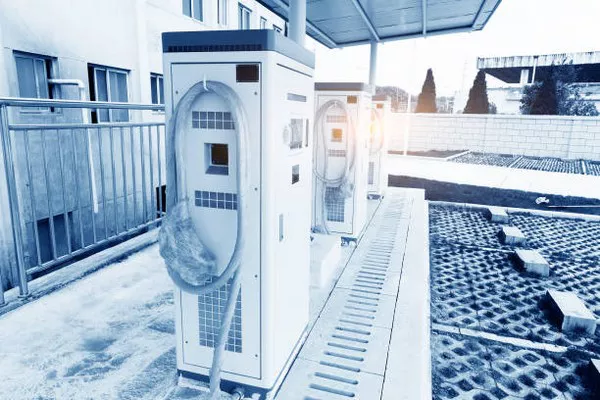When it comes to ensuring the comfort and functionality of your home or business, a reliable HVAC (Heating, Ventilation, and Air Conditioning) system is essential. However, power outages can disrupt your HVAC system’s operation, leaving you in uncomfortable and potentially dangerous conditions. To address this issue, many individuals and businesses invest in backup generators to keep their HVAC systems running during power interruptions. But how do you determine the right generator size to power your HVAC system efficiently and effectively? In this comprehensive guide, we will explore the factors and considerations that influence your decision when selecting the appropriate generator size.
Understanding HVAC System Power Requirements
Before diving into the specifics of generator sizing, it’s crucial to understand the power requirements of your HVAC system. HVAC systems vary in size and complexity, but they all share common elements that consume electrical power. The key components that require electrical power in an HVAC system include:
Compressor: The heart of your air conditioning system, the compressor, is responsible for cooling the air. Compressors come in various sizes and capacities, and their power requirements differ accordingly.
Air Handler/Furnace: The air handler or furnace is responsible for heating and distributing air throughout your space. It includes components such as blower motors, heating elements, and control boards.
Thermostat: The thermostat is the control center for your HVAC system, regulating temperature settings and initiating HVAC system functions.
Fans: In addition to the blower motor in the air handler/furnace, HVAC systems often have outdoor fans (condenser fans) that assist in the cooling process.
Auxiliary Heating: Some HVAC systems have auxiliary heating elements, such as electric resistance heaters, which can significantly increase power requirements.
Calculating Total Power Requirements
To determine the total power requirements of your HVAC system, you need to identify the wattage or amperage ratings for each of the above components. This information is typically provided in the manufacturer’s specifications or user manual. Once you have these ratings, you can add them together to calculate the total power consumption of your HVAC system.
For instance, if your air conditioner’s compressor consumes 3,500 watts, the blower motor uses 500 watts, and the thermostat and other components add up to 200 watts, your total power requirement would be 4,200 watts (or 4.2 kW).
Generator Sizing Guidelines
Now that you know the power requirements of your HVAC system, let’s delve into the guidelines for selecting the right generator size:
Start-Up Surge: When an HVAC system starts, it often requires a surge of power to initiate the compressor and other components. This surge can be several times higher than the system’s running power. To accommodate this surge, it’s recommended to choose a generator with a starting or surge power rating that is higher than the peak power requirement of your HVAC system.
Running Power: The generator’s running power rating should be sufficient to meet the continuous power requirements of your HVAC system while it’s in operation. To ensure reliability, the generator’s running power should ideally exceed the total running power requirement of your HVAC system.
Other Loads: Consider other electrical loads you may want to power simultaneously during a power outage, such as lights, refrigerators, or computers. Make sure to account for these loads when determining the overall generator size needed.
Fuel Type: Generators can run on various fuels, including gasoline, diesel, propane, or natural gas. The fuel type can affect the generator’s power output and efficiency. Choose a fuel type that aligns with your preferences and availability.
Environmental Factors: Environmental conditions, such as altitude and temperature, can impact a generator’s performance. Consult the generator manufacturer’s guidelines for any altitude or temperature-related derating factors.
Generator Type: Generators come in various types, including portable, standby, and inverter generators. Each type has its own advantages and limitations. Standby generators are generally more powerful and suitable for running larger HVAC systems, while portable generators are more versatile and can be used for a wider range of applications.
Case Study: Sizing a Generator for a Residential HVAC System
Let’s consider a real-world example to illustrate the generator sizing process for a residential HVAC system. Suppose you have a typical residential HVAC system with the following power requirements:
Compressor: 3,500 watts (surge), 2,500 watts (running)
Blower Motor: 500 watts
Other Components (Thermostat, Fans, etc.): 200 watts
The total surge power requirement would be the highest value, which is 3,500 watts. To ensure a smooth start-up, you should select a generator with a surge power rating greater than 3,500 watts. A generator with a 4,000-watt surge rating should suffice in this case.
For the continuous running power, you would add up the running power requirements of all components: 2,500 watts + 500 watts + 200 watts = 3,200 watts. To ensure efficient and reliable operation, select a generator with a running power rating greater than 3,200 watts. A generator with a 4,000-watt running power rating would provide ample capacity for your HVAC system.
Conclusion
Choosing the right generator size to run your HVAC system during power outages is crucial for maintaining comfort and safety in your home or business. Understanding your HVAC system’s power requirements and considering factors such as start-up surges, other electrical loads, fuel type, and environmental conditions will help you make an informed decision.
Remember that it’s always a good practice to consult with a licensed electrician or generator expert when selecting and installing a generator. They can provide valuable insights and ensure that your generator setup is safe and compliant with local regulations. With the right generator size and proper installation, you can enjoy uninterrupted comfort even during unexpected power disruptions.

